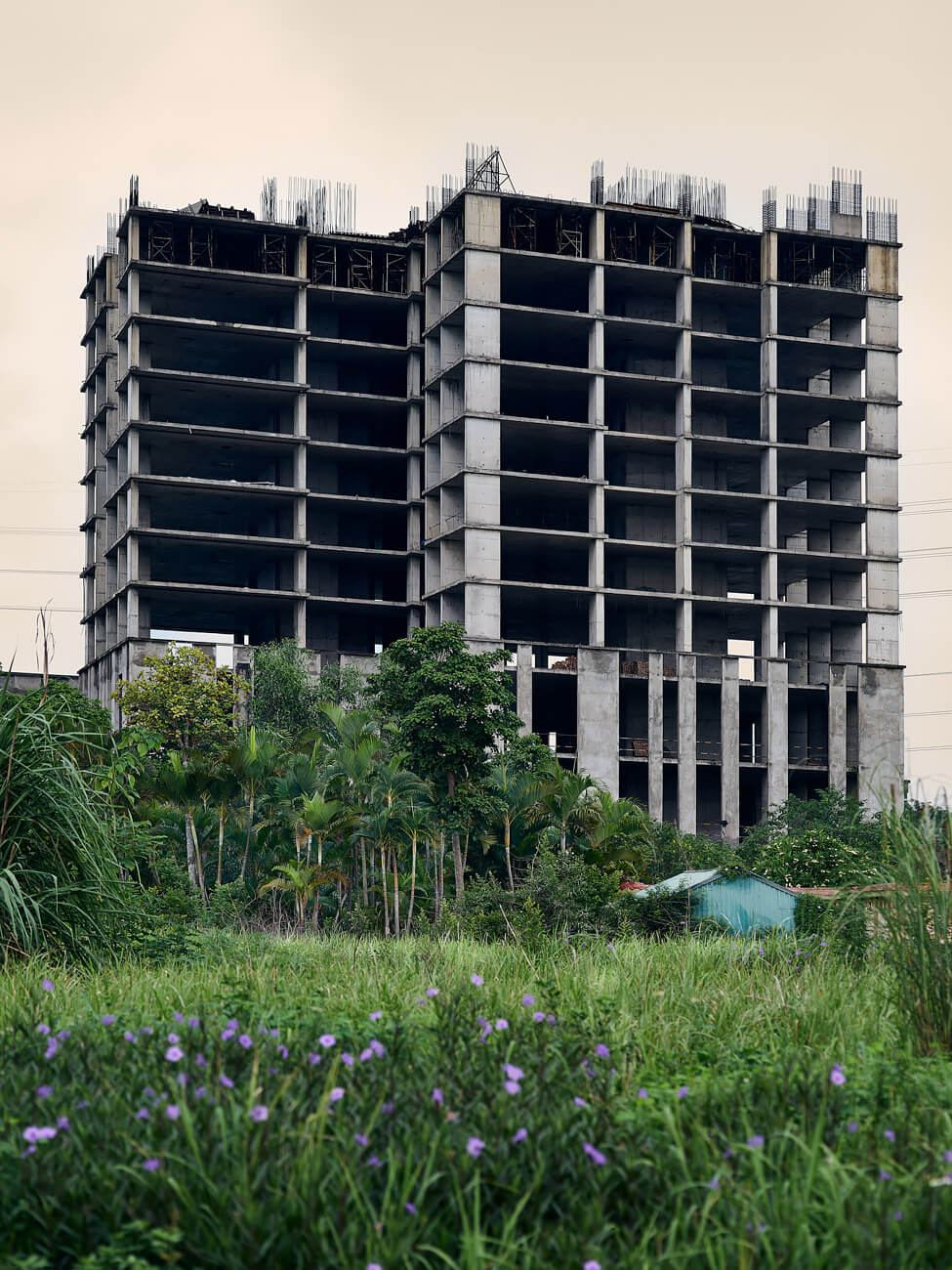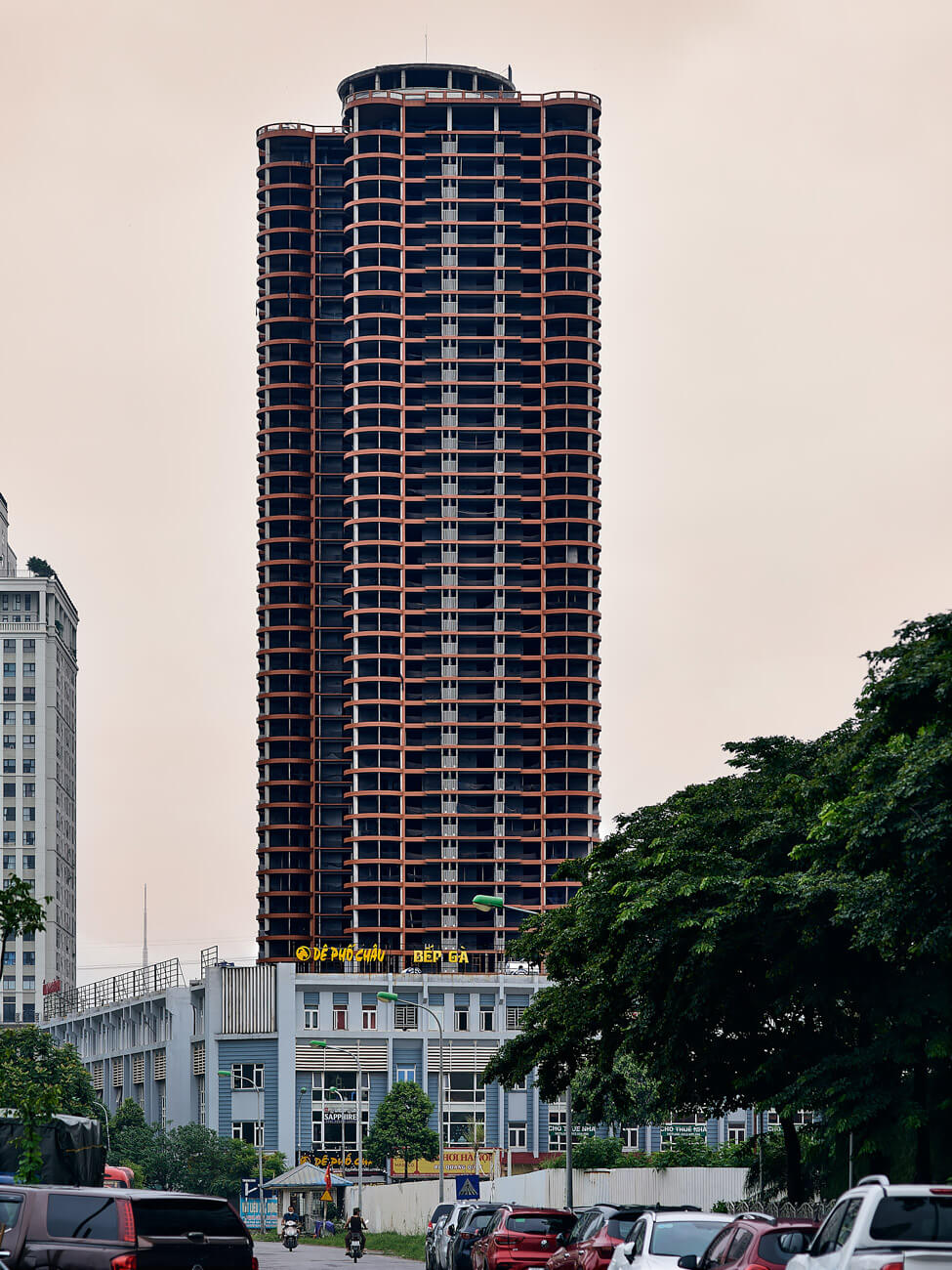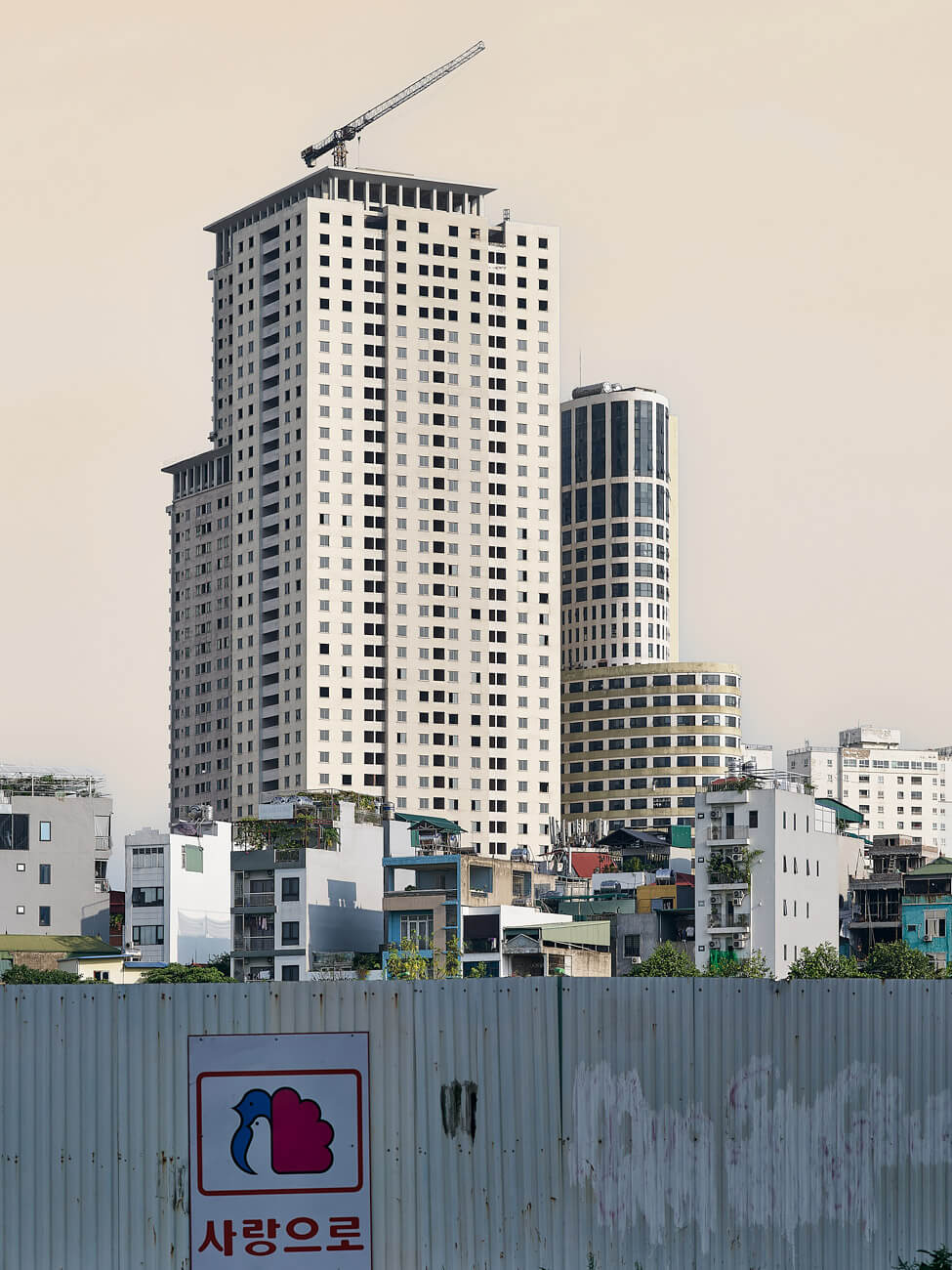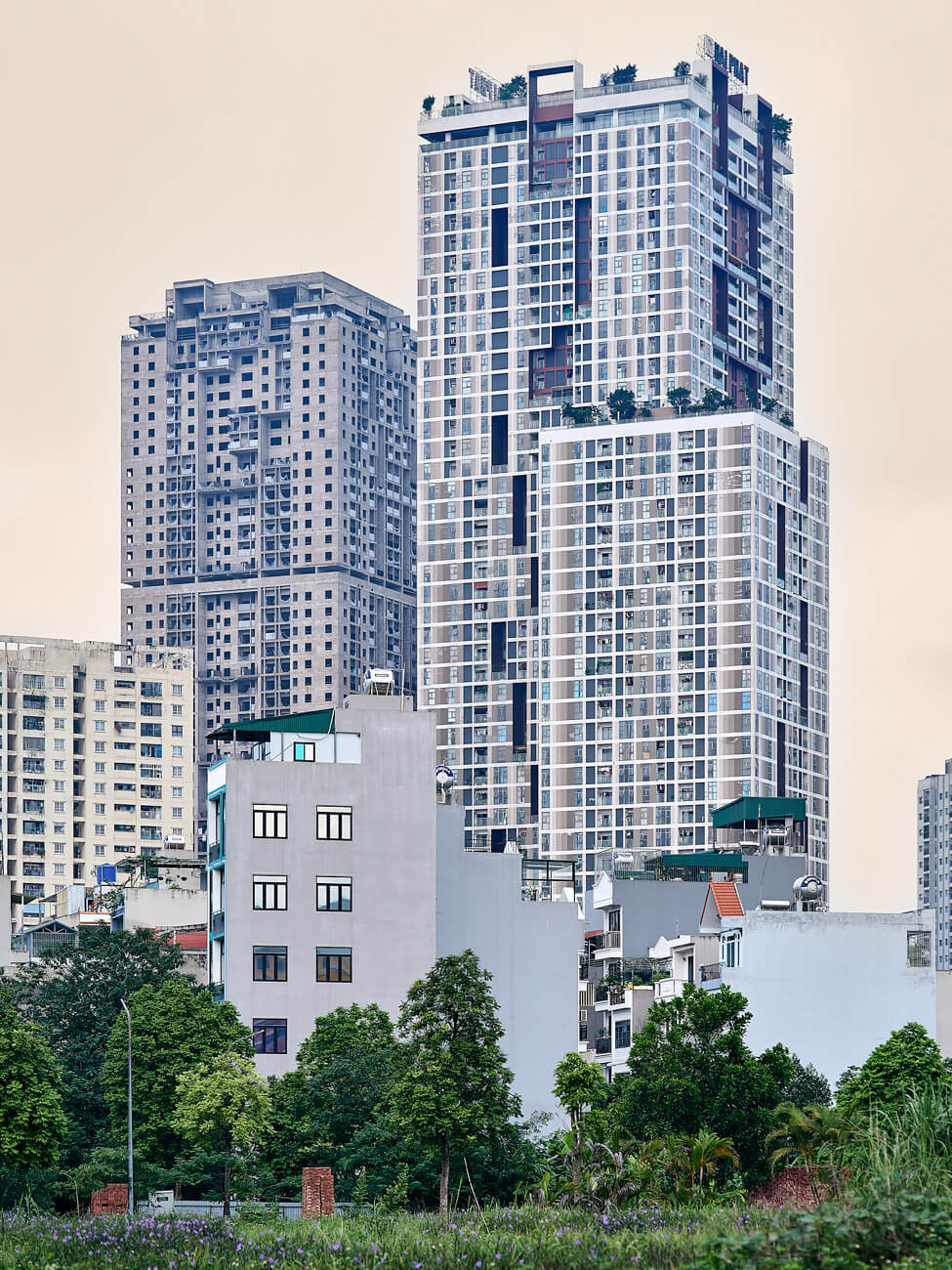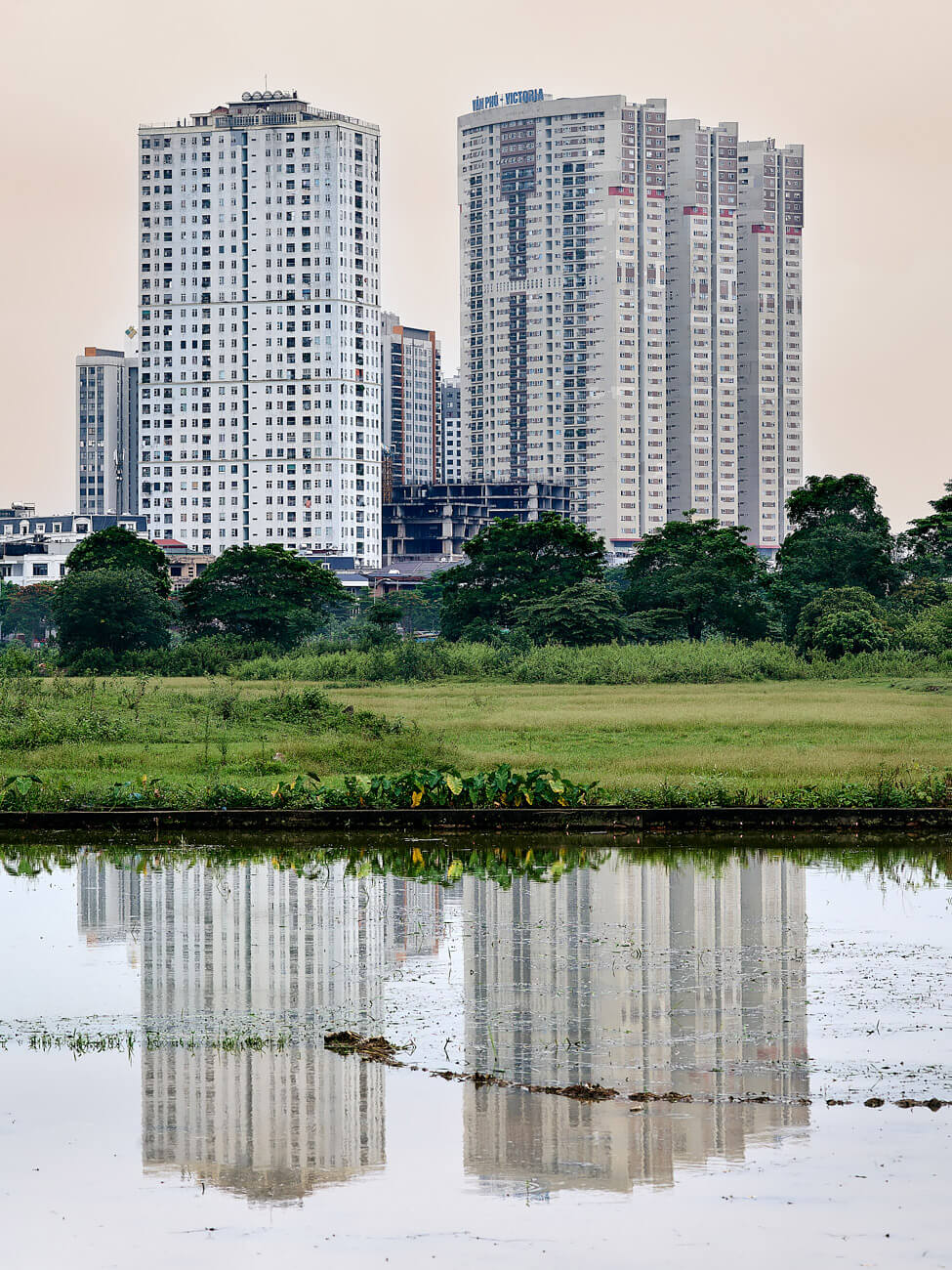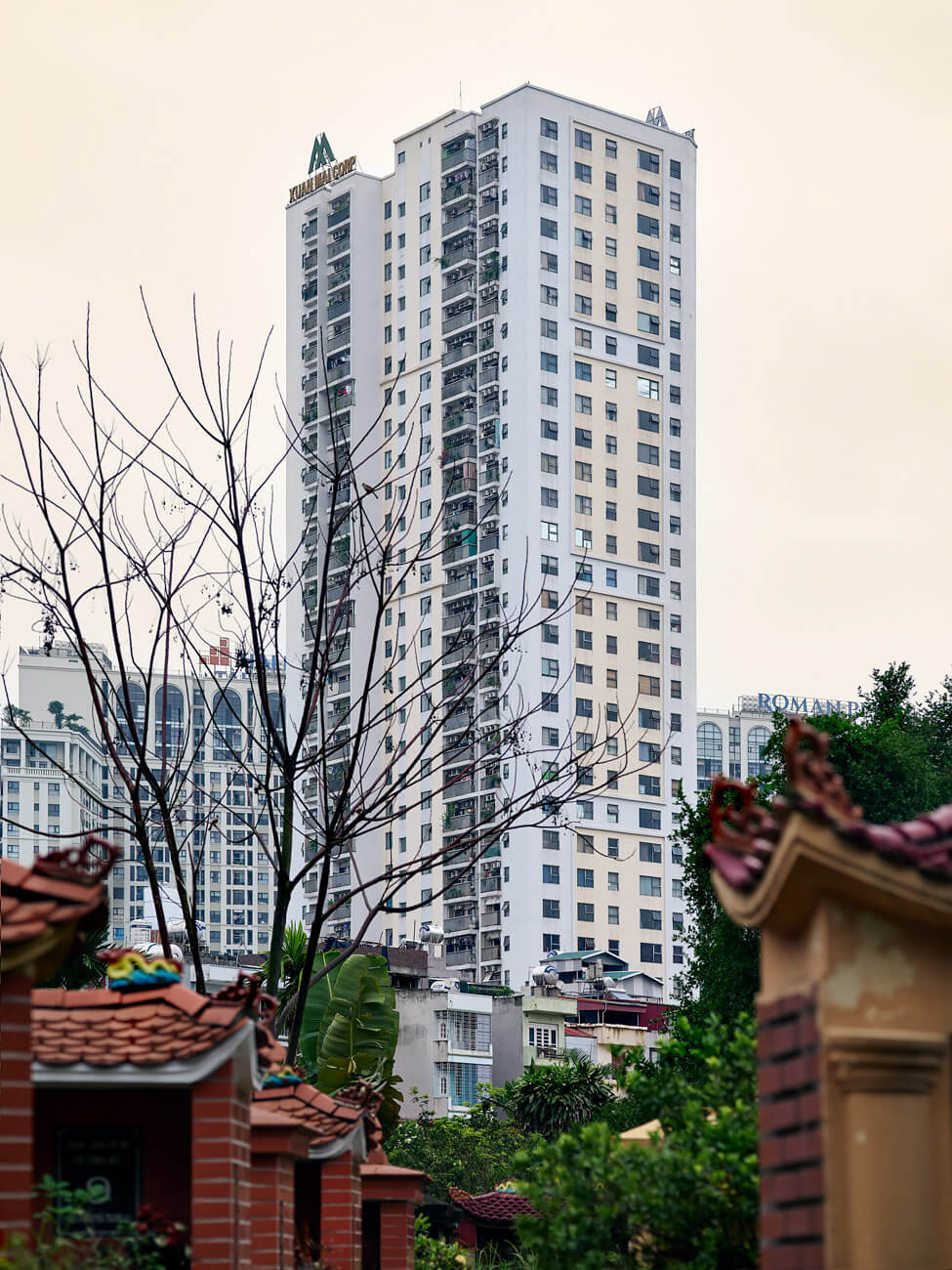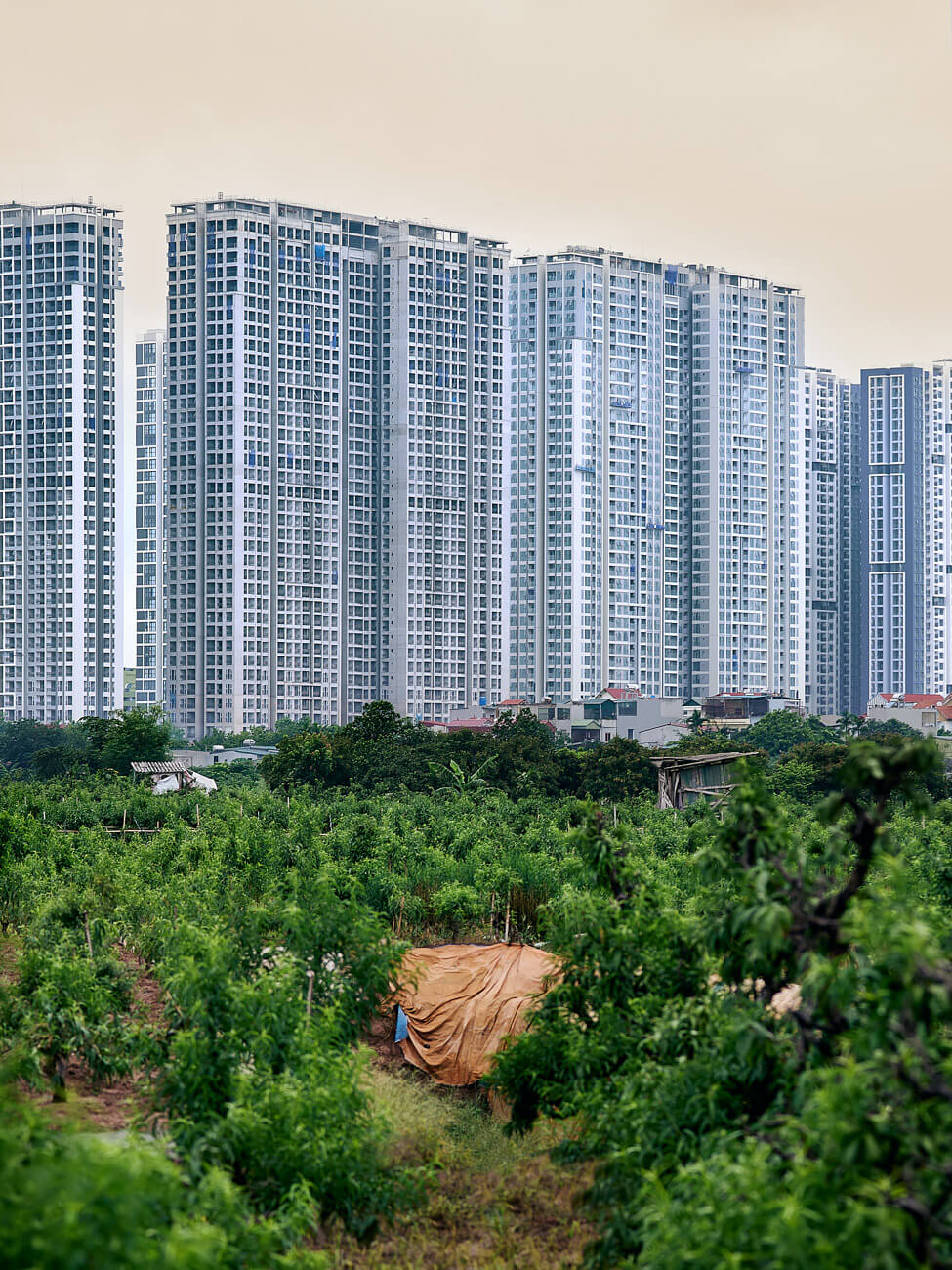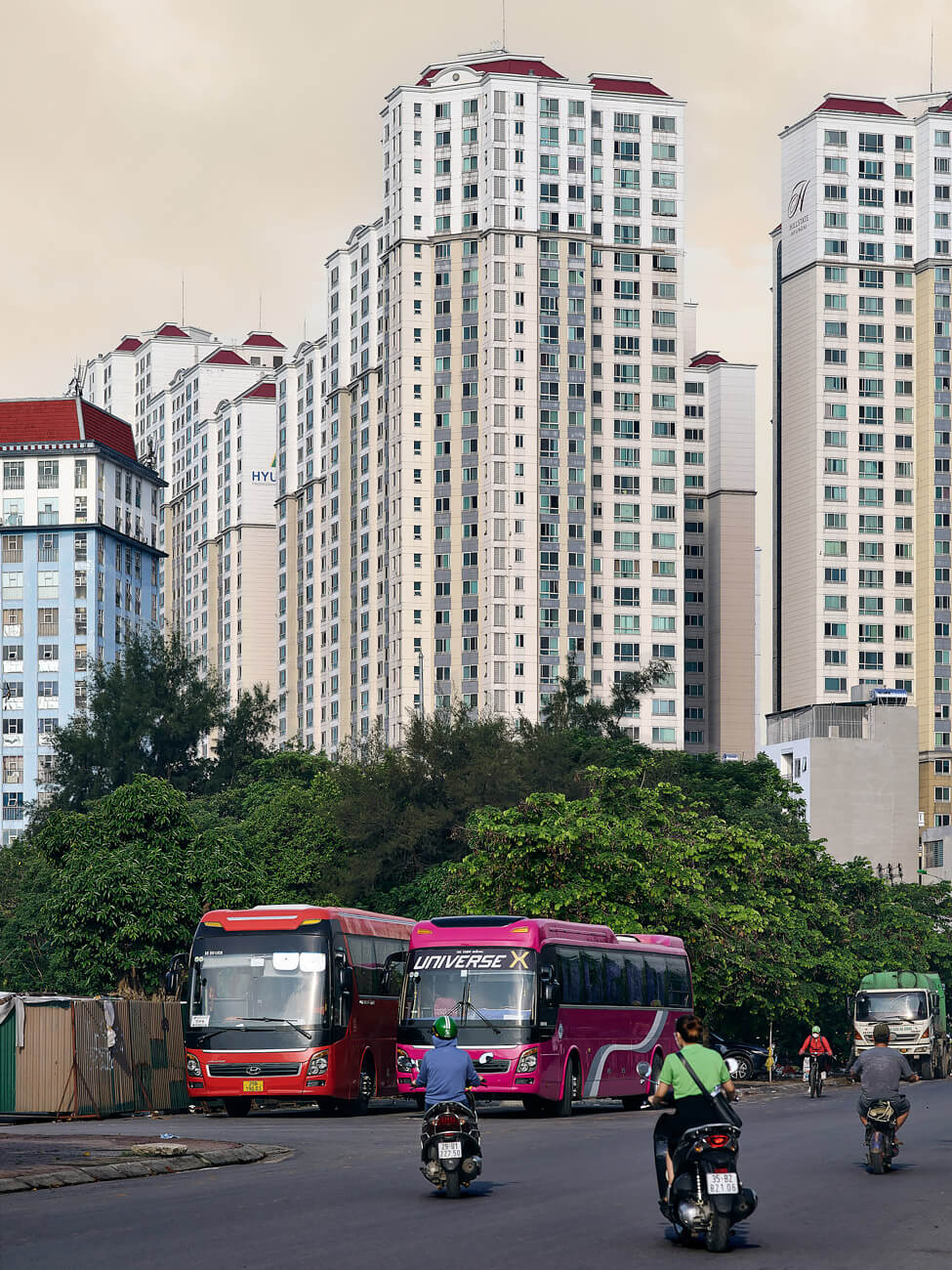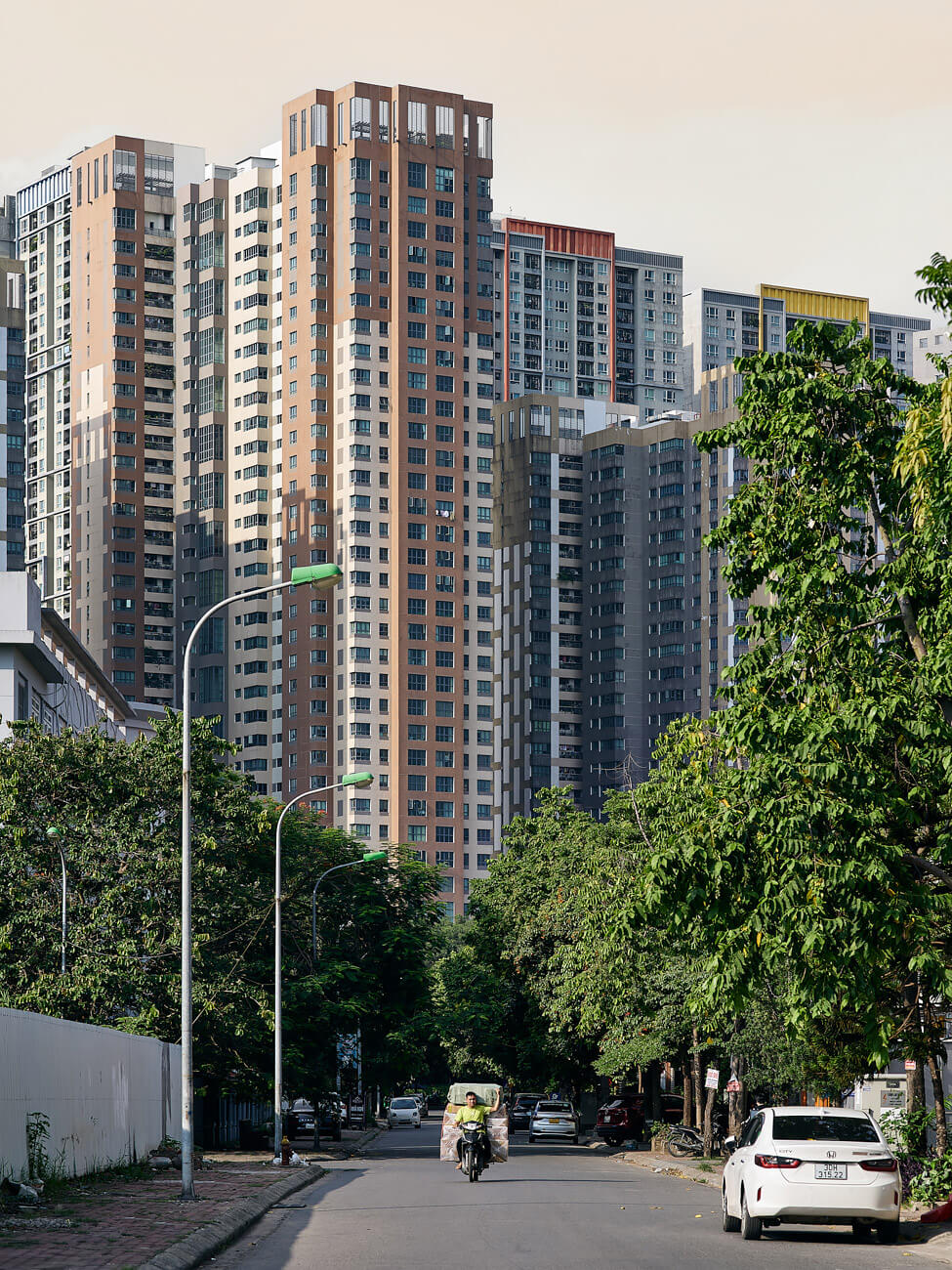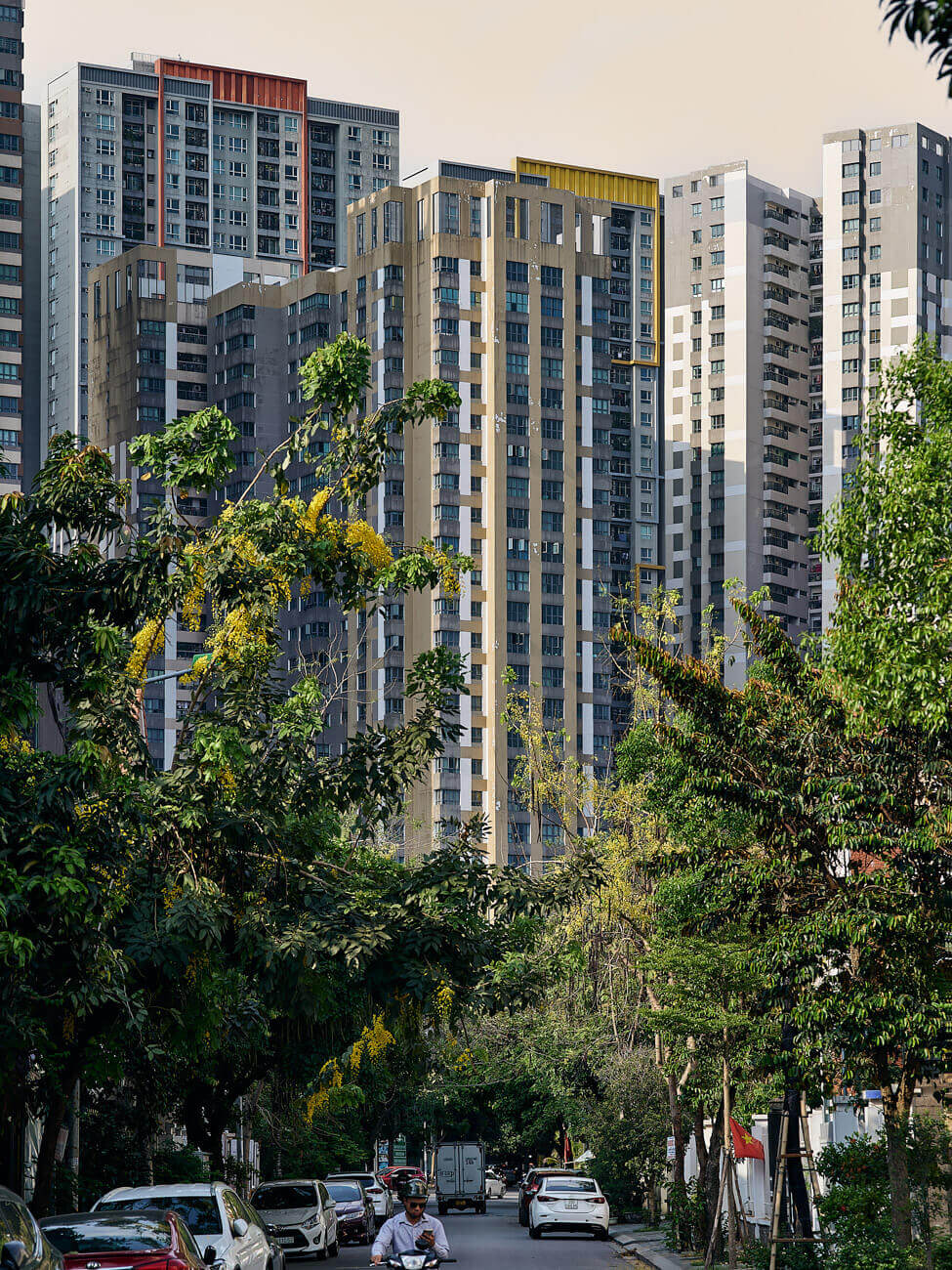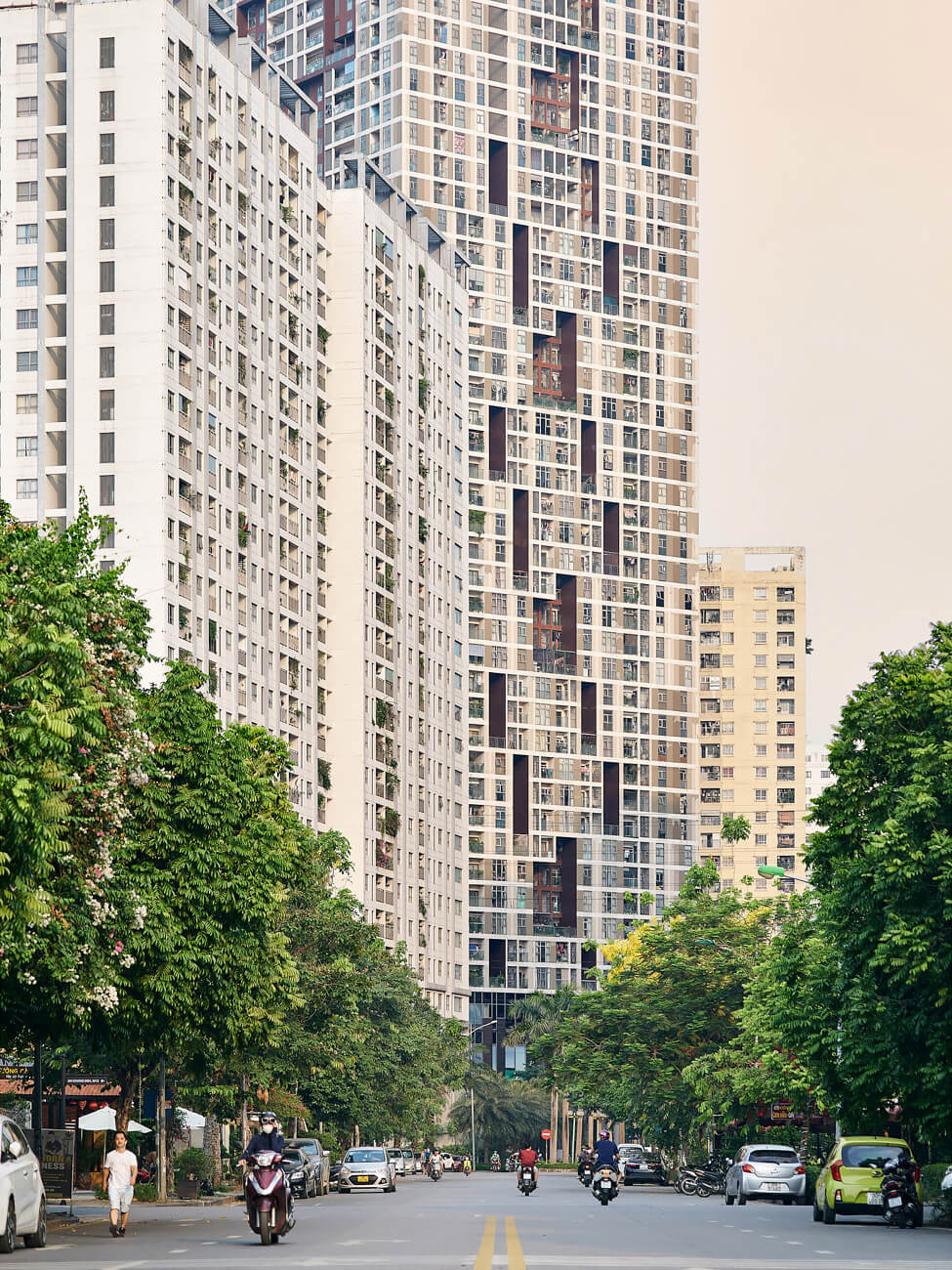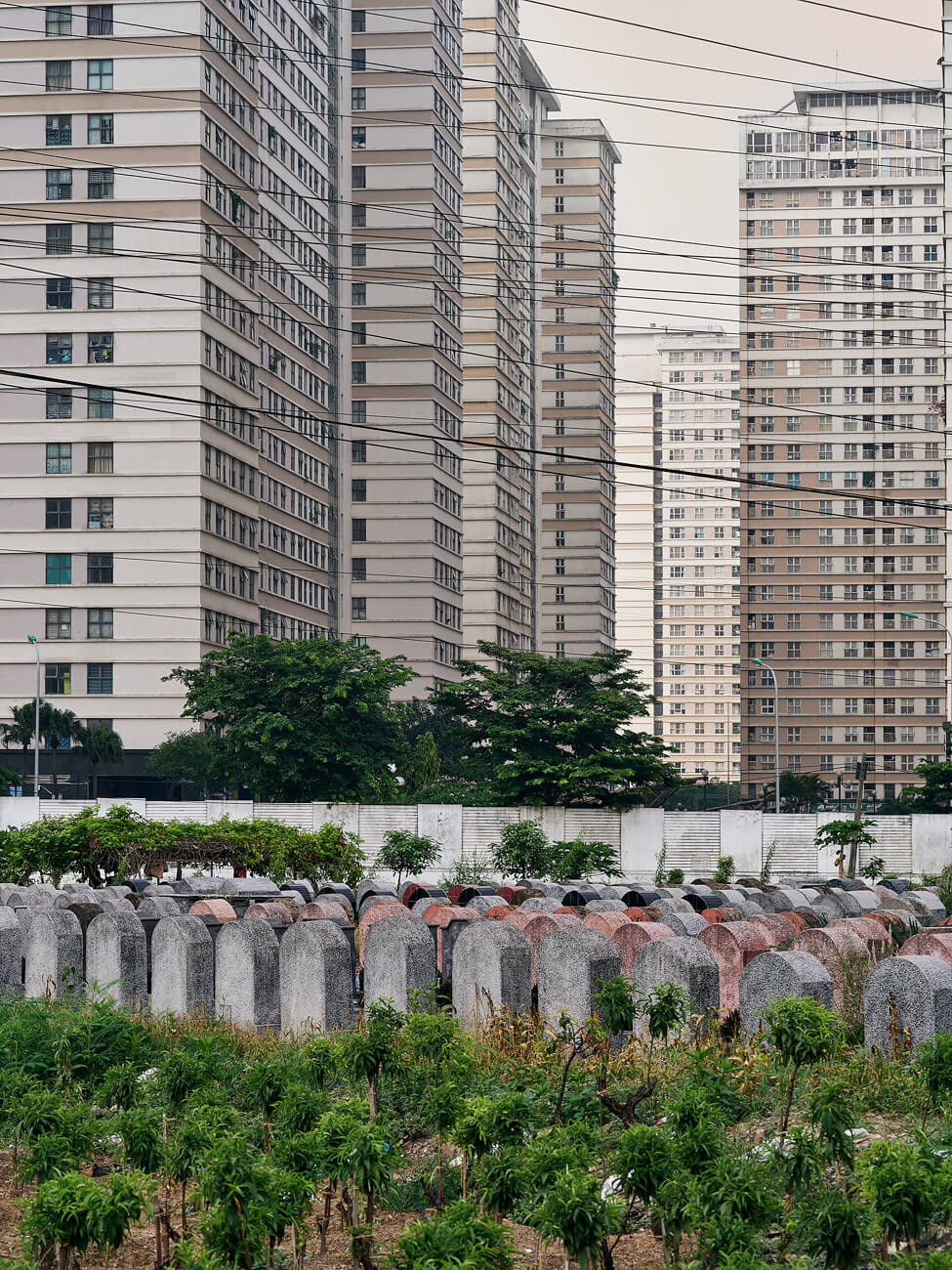Vertical residences are a popular solution for urban living. They are apartments, condos, and
mixed-use developments with elevators, parking, and shared recreational areas. They are
convenient and desirable due to their proximity to work, city amenities, and breathtaking
views from above.
In Vietnam, the shift towards urbanisation has led to changes in land use, especially in
regions like Ha Dong, a district in the capital city of Hanoi (formerly known as Ha Dong city).
This district currently acts as the gateway to the capital, and as a result, it has experienced a
substantial influx of vertical migration alongside rapid urbanisation. The landscape of Ha
Dong has undergone a transformation, with agricultural fields and village houses being
converted into modern urban areas.
The population growth can be observed over the period from 1975 to 2009, during which the
population density increased from 3,588 people per square kilometer to 4,611 people per
square kilometer. The next decade witnessed a skyrocketing rise to 8,900 people per square
meter by 2022 (according to Hà Đông geography), showcasing the extent of the impact of
urbanization.
The rise of vertical residences has significantly influenced Vietnam's modern culture and
society, reshaping the physical landscape and transforming human life in this new era. The
rapid escalation in urban population density is expected to intensify demands on resources
and trigger further social changes.
Pillar Support Sky No. 1 © Danny Bach
An unfinished project seemed to have been forgotten, transforming into nothing more than a
giant block of reinforced concrete, resembling a pillar that supports the sky
Awaiting the day it will be put into use.
Pillar Support Sky No. 2 © Danny Bach
An unfinished project seemed to have been forgotten, transforming into nothing more than a
giant block of reinforced concrete, resembling a pillar that supports the sky
Awaiting the day it will be put into use.
Pillar Support Sky No. 2 © Danny Bach
An unfinished project seemed to have been forgotten, transforming into nothing more than a
giant block of reinforced concrete, resembling a pillar that supports the sky
Awaiting the day it will be put into use.
From fields to apartments (No. 1) © Danny Bach
The complex of constructions ranges from unfinished and halfway completed structures to
buildings that have been put into use.
From fields to apartments (No. 2) © Danny Bach
The complex of constructions ranges from unfinished and halfway completed structures to
buildings that have been put into use.
Danny Bach is a photographer specialising in documentary and portraiture.
He is also the master printer of Vietnam Giclée Lab and the director of Hoa
Ta Co. Ltd.
Danny sees himself primarily as an independent photo storyteller who
focuses on conveying sympathy and hope through his stories. In addition to
his personal projects, he also photographs editorial and commercial
portraits for publications such as Forbes Vietnam magazine and Saigon
Entrepreneur magazine, as well as for various corporations and companies
including Vingroup, KOMPA, ASA Lighting Studio, and LK Technology.
Since 2017, Danny has been recognized as the founder and master printer of
Vietnam Giclée Lab, which is the first certified digital fine art printer in
Vietnam.
dannybach.com
@dannybachphoto
From fields to apartments (No. 3) © Danny Bach
A building has been put into use
From fields to apartments (No. 4) © Danny Bach
The high-rise building complex is gradually being completed facing the peach farm.
Concrete skylight (No. 1) © Danny Bach
Once vast skies, are now adorned with magnificent high-rise buildings
Concrete skylight (No. 2) © Danny Bach
Once vast skies, are now adorned with magnificent high-rise buildings
Concrete skylight (No. 3) © Danny Bach
Once vast skies, are now adorned with magnificent high-rise buildings
Concrete skylight (No. 4) © Danny Bach
Once vast skies, are now adorned with magnificent high-rise buildings
Concrete skylight (No. 5) © Danny Bach
Once vast skies, are now adorned with magnificent high-rise buildings


